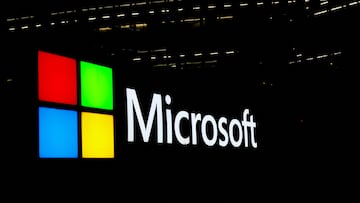FINANCE
When did Bill Gates found Microsoft? How did he get money to start the company?
When Bill Gates founded Microsoft in 1979, he couldn’t have imagined the impact the company would have on the global economy.

A Seattle native, Bill Gates was born into an upper-middle-class family and, in his youth, was able to explore his interest in computer programming. Gates was a great student, scoring very high on the SAT, and, combined with his experience as a page in the halls of Congress in 1972, he was accepted to Harvard.
After arriving at the Ivy League, he pursued a bachelor’s degree in pre-law but ended up dropping out to focus on an emerging entrepreneurial idea he had. When explaining his choice to leave Harvard in 1994, Gates said:
“If things hadn’t worked out, I could always go back to school. I was officially on leave.”
It is clear, however, that things did work out for the young Gates.
The Origins of Microsoft
After departing Harvard, Gates went west to Albuquerque, New Mexico, where he met up with lifetime friend Paul Allen. The two started Microsoft in 1975, but it was not until 1983 that the company established itself as Microsoft Corporation Inc. and began to release the products that consumers recognize the brand for today. The first version of Microsoft Word was launched in 1983, but the program did not become the leader in the market until the late 1980s and early 1990s because its interface was seen as complicated for users. The two founders provided the funding to start the company and were able to identify potential clients early on and steadily grow the business.
The Gates departure from Microsoft
In 2014, Gates stepped down as Chairman and became Microsoft’s technical advisor. Post-Microsoft, Gates has focused on his philanthropic ventures. He had started the Bill and Melinda Gates Foundation with his then-wife and established The Giving Pledge with longtime friend and fellow-billionaire Warren Buffet. The pledge aims to raise awareness of a campaign encouraging the super-rich to give away more than half their wealth before death. The Pledge was founded in an effort “to help shift the social norms of philanthropy among the world’s wealthiest people and inspire people to give more, establish their giving plans sooner, and give in smarter ways.” Those who sign it are making a commitment “to give the majority of their wealth to charitable causes, either during their lifetimes or in their wills.”
Critics of the Bill and Melinda Gates Foundation and others like it led by the super-rich are extremely concerned by the precedent set by the Gateses and The Giving Pledge. As private organizations, evaluating the initiatives’ effectiveness is difficult because of the lack of transparency. As Pablo Eisenberg of Georgetown Public Policy Institute told Nature in 2007, you now have
“foundations with assets larger than almost 70 percent of the world’s nations making decisions about public policy and public priorities […] without any public discussion or political process.”
Confronting global challenges in a just manner will require accountability and transparency, and foundations are not required to provide it.






